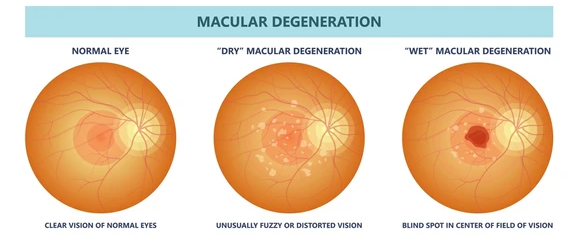Macula: Causes, Symptoms, Treatment, and Precautions
Delve into comprehensive insights on the macula: causes, symptoms, treatment, and precautions. Learn how to protect and maintain your macular health effectively.


The macula is a small, highly sensitive part of the retina located at the back of the eye. It is responsible for central vision, which allows us to see fine details and perform tasks such as reading, driving, and recognizing faces. Any damage or dysfunction to the macula can significantly impact a person's vision and quality of life.
Causes of Macula Problems:
There are several factors that can contribute to macula problems. Age-related macular degeneration (AMD) is the most common cause, especially in individuals over the age of 60. Other causes include:
Diabetic retinopathy
Macular edema
Macular hole
Macular pucker
Macular dystrophy
Macular ischemia
Symptoms of Macula Problems:
The symptoms of macula problems can vary depending on the specific condition. However, some common signs to watch out for include:
Blurred or distorted central vision
Difficulty reading or recognizing faces
Dark or empty areas in the center of vision
Color perception changes
Sensitivity to light
Treatment for Macula Problems:
While there is no cure for certain macula problems, there are treatment options available to manage the condition and preserve vision. Some common treatment approaches include:
Intravitreal injections
Laser therapy
Vitrectomy
Medication to slow down the progression of the disease
Low vision aids and rehabilitation
Precautions to Maintain Macular Health:
Prevention is always better than cure when it comes to maintaining macular health. Here are some precautions you can take:
Regular eye exams: Visit an eye care professional regularly to detect any early signs of macula problems.
Quit smoking: Smoking can increase the risk of macular degeneration.
Eat a healthy diet: Include foods rich in antioxidants, vitamins, and minerals to support macular health.
Protect your eyes from UV rays: Wear sunglasses that block out harmful UV rays when outdoors.
Maintain a healthy lifestyle: Exercise regularly, maintain a healthy weight, and manage chronic conditions like diabetes and hypertension.
It is important to remember that any changes in vision should be promptly evaluated by an eye care professional. Early detection and intervention can significantly improve the prognosis for macula problems.
In conclusion, understanding the macula, its causes, symptoms, treatment options, and taking necessary precautions can help individuals maintain their macular health and preserve their vision. Regular eye exams and a healthy lifestyle are key to preventing and managing macula problems.
